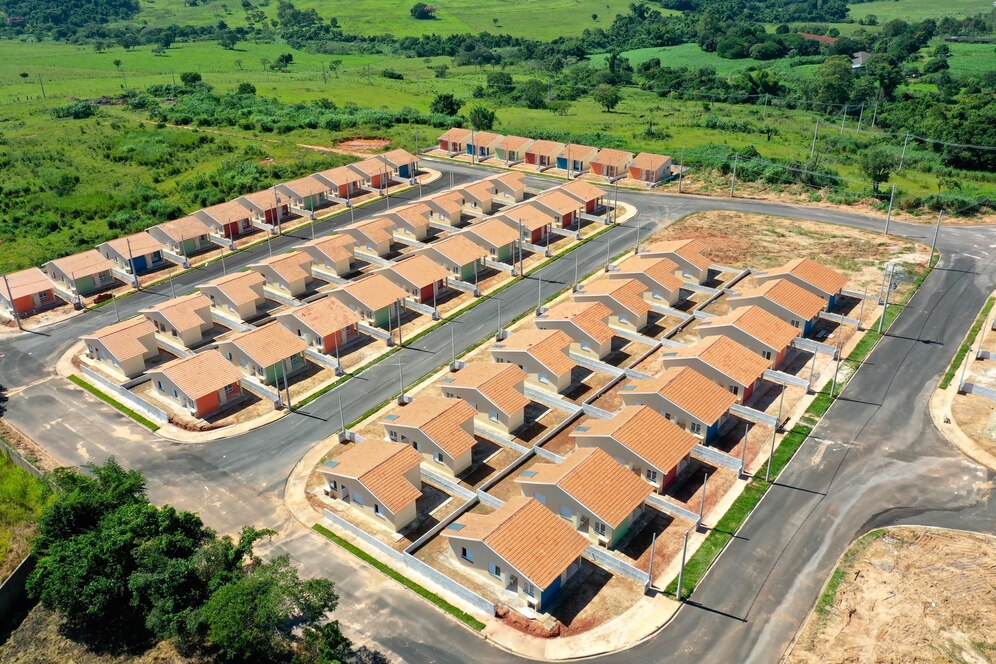Access to decent and affordable housing remains a growing priority in Botswana, particularly within the country’s rapidly urbanizing centers. Cities like Gaborone, Francistown, Maun, and Selebi-Phikwe are experiencing population growth, leading to increased demand for residential developments that are both affordable and sustainable. In response, the government and private sector have initiated a range of affordable housing projects aimed at bridging the housing gap for low to middle-income earners.
This article explores the landscape of affordable housing in Botswana’s urban areas, ongoing projects, and what prospective homeowners need to know.
The Growing Demand for Urban Housing
Urbanization in Botswana has accelerated over the past two decades. As more people move to cities in search of employment, education, and better services, housing has become a pressing issue. According to local housing reports, Botswana has a shortage of over 100,000 housing units, most of which are needed in urban and peri-urban areas.
The high cost of land, limited access to housing finance, and rising construction costs have traditionally made it difficult for many citizens to own property. However, efforts are being made to turn the tide.
Government-Backed Affordable Housing Initiatives
The Government of Botswana, through agencies like the Botswana Housing Corporation (BHC) and the Ministry of Lands and Water Affairs, has been spearheading affordable housing developments focused on urban centers.
1. Self-Help Housing Agency (SHHA) Scheme
The SHHA program supports low-income earners by providing subsidized plots, building materials, and technical assistance. This initiative is ideal for individuals earning below a certain income threshold and allows them to construct their homes incrementally.
Key features include:
- Access to serviced plots in urban and peri-urban areas
- Low-interest housing loans (between P10,000 to P90,000)
- Priority for people with dependents and permanent residents in city councils
2. BHC Affordable Housing Developments
The Botswana Housing Corporation continues to launch high-density housing projects in major towns and cities. Recent developments include:
- Phakalane and Gaborone North estates: Offering 2- to 3-bedroom homes priced for middle-income buyers.
- Tati Siding (Francistown): Affordable rental units and sale-ready houses built with modern, cost-saving construction materials.
- Palapye and Selibe-Phikwe BHC projects: Designed for civil servants and first-time homeowners.
These homes are built with accessibility and durability in mind and come with flexible payment plans for buyers.
Private Sector Involvement in Affordable Housing
Beyond the government, private developers are increasingly entering the affordable housing market. Companies such as Universal Builders, Time Projects, and Constructive Developers are collaborating with municipalities to deliver cost-effective housing solutions.
Some notable initiatives include:
- Mixed-use developments in Gaborone and Maun that combine affordable apartments, small retail units, and communal green spaces.
- Turnkey housing schemes that allow buyers to own completed houses at pre-agreed prices, often with mortgage options.
- Public-private partnerships (PPPs) where land is provided by local councils and the private sector handles development.
Financing Options for Buyers
One of the key barriers to homeownership is access to finance. Fortunately, several financial institutions in Botswana offer housing loan products tailored for affordable housing:
- Botswana Building Society (BBS) offers mortgage loans with flexible repayment terms.
- First National Bank (FNB) and Stanbic Bank have special schemes for first-time homeowners, civil servants, and SHHA plot owners.
- Botswana Savings Bank (BSB) works closely with SHHA and BHC clients to extend financing with lower down payments.
Buyers can also take advantage of government subsidies under programs like the SHHA Home Improvement Scheme, which assists with renovations and expansions.
Challenges Facing Affordable Housing Development
Despite progress, there are several challenges that still need to be addressed:
- Land scarcity in prime urban locations increases costs and delays development.
- Lengthy approval processes for building permits and land allocation.
- High construction costs, especially for infrastructure like roads, water, and sewage systems.
- Limited awareness among citizens about housing schemes and eligibility criteria.
Government and stakeholders are working on streamlining regulations and promoting the use of alternative building technologies like prefabricated homes and interlocking bricks to reduce construction time and cost.
The Future of Affordable Housing in Botswana
To meet the growing housing demand, Botswana’s urban centers are expected to see more affordable housing projects rolled out in the coming years. Policy shifts towards inclusive urban planning, green infrastructure, and smart housing designs are already taking shape. Additionally, youth-focused housing schemes and rental-to-own models are gaining momentum.
For those looking to invest or own a home in Botswana, staying informed about ongoing projects, attending housing expos, and exploring government-backed schemes are key steps toward making homeownership a reality.
Affordable housing in Botswana’s urban centers is not just a dream—it’s becoming a reality thanks to targeted government programs and private sector investment. With proper planning, research, and access to the right financing, more Batswana can secure quality homes in well-connected, growing communities.










